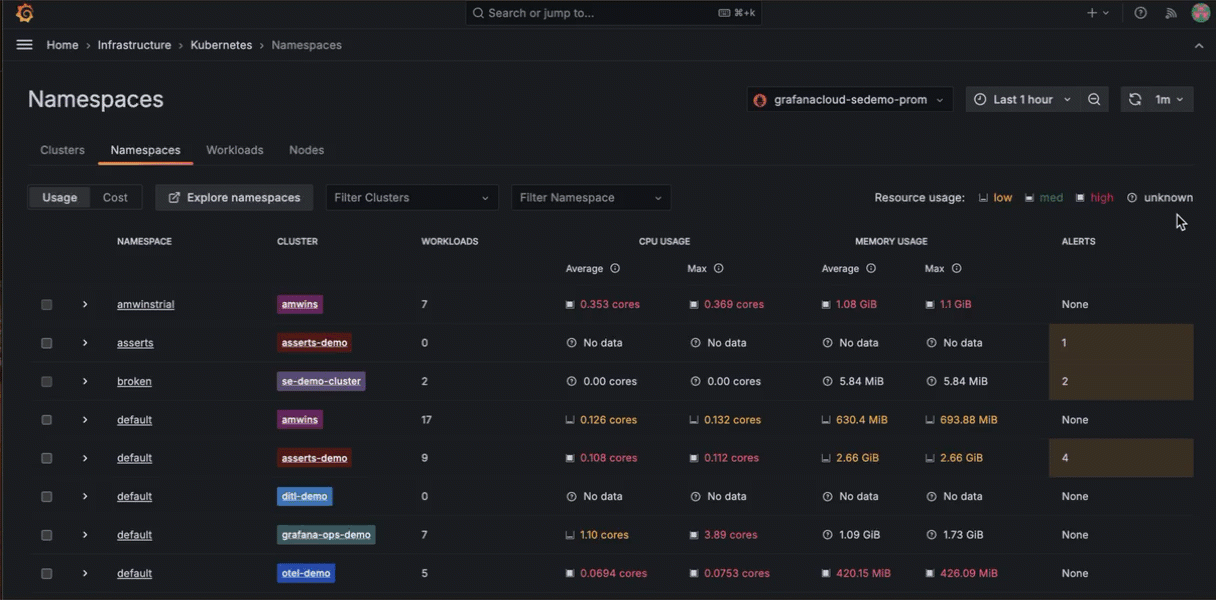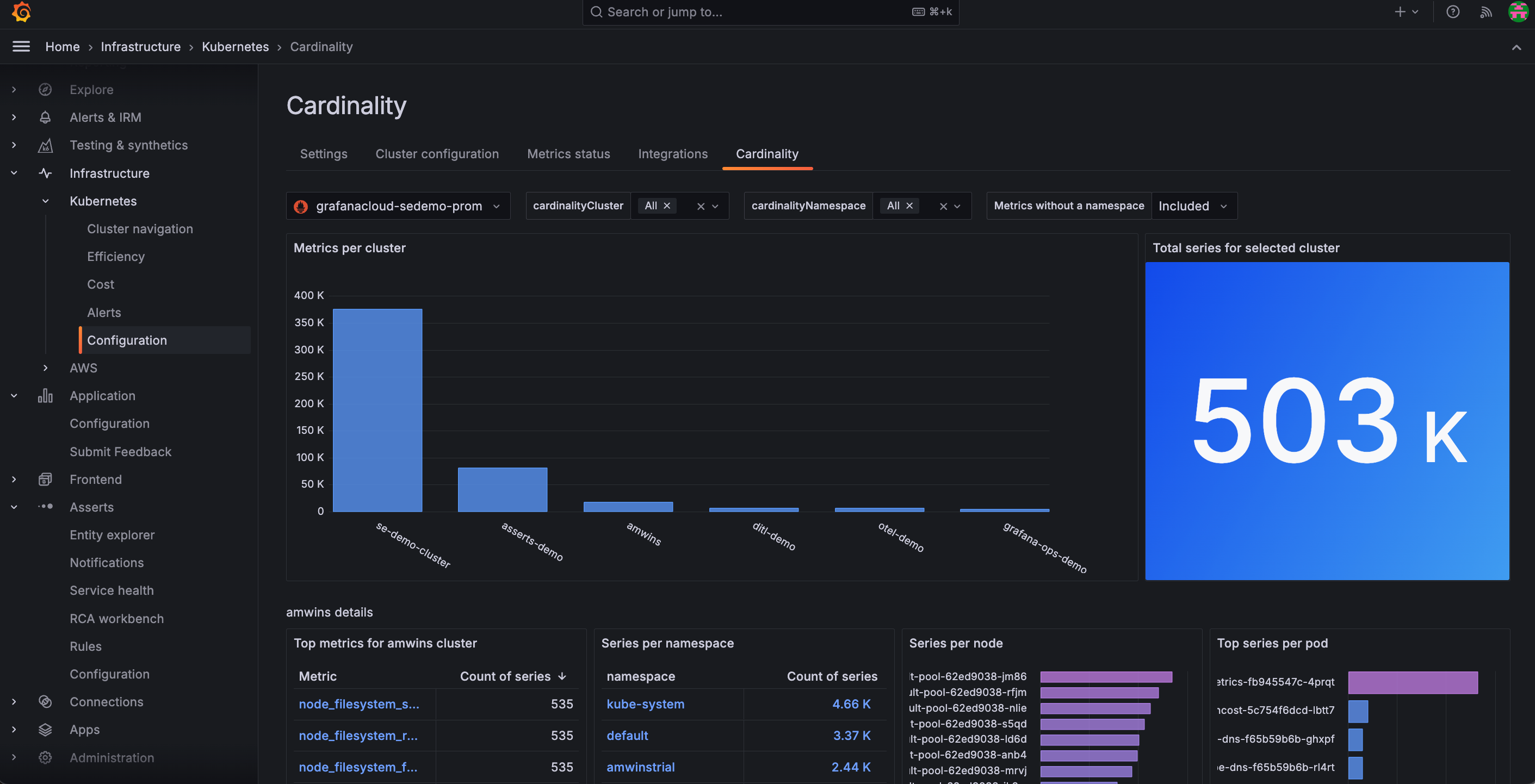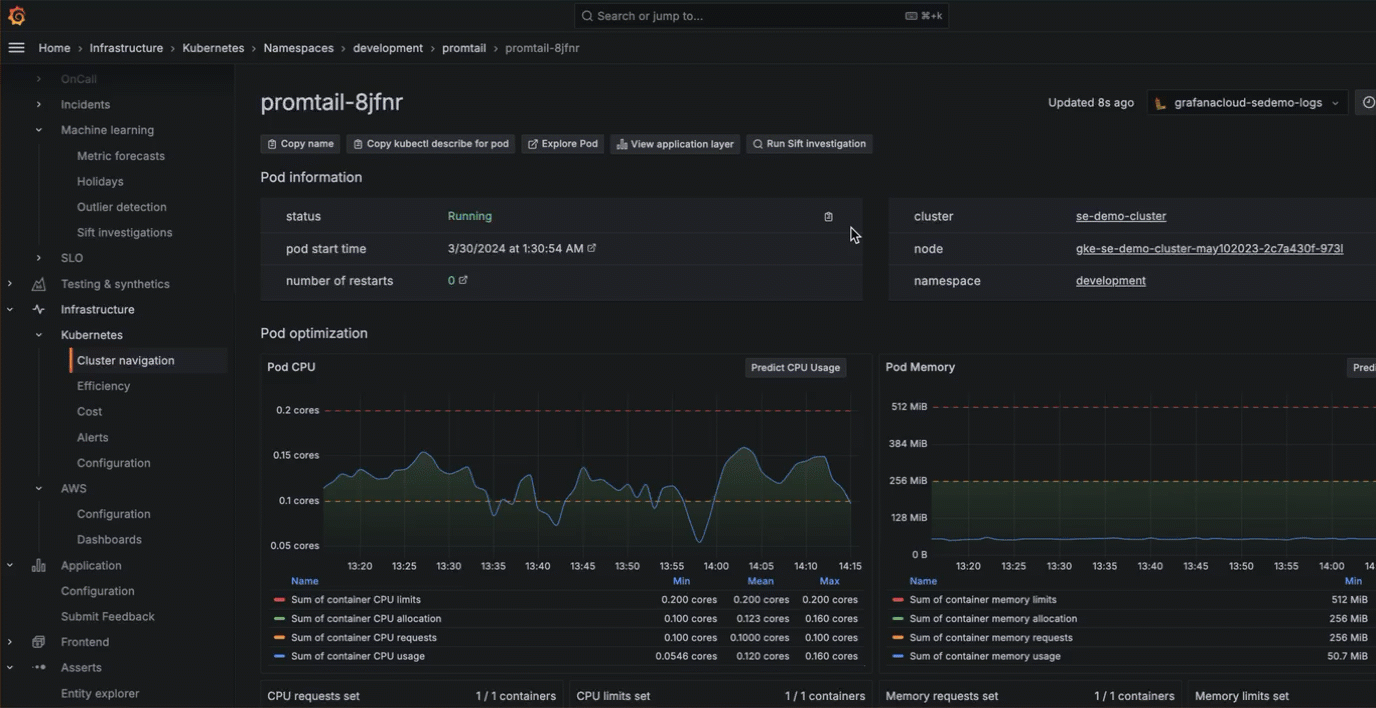What’s new in Grafana Cloud
Grafana Labs products, projects, and features can go through multiple release stages before becoming generally available. These stages in the release life cycle can present varying degrees of stability and support. For more information, refer to release life cycle for Grafana Labs.
No results found. Please adjust your filters or search criteria.
Anonymous users are billed in Grafana Enterprise
We are announcing a license change to the anonymous access feature in Grafana 11. As you may already be aware, anonymous access allows users access to Grafana without login credentials. Anonymous access was an early feature of Grafana to share dashboards; however, we recently introduced Public Dashboards which allows you to share dashboards in a more secure manner. We also noticed that anonymous access inadvertently resulted in user licensing issues. After careful consideration, we have decided to charge for the continued use of anonymous access starting in Grafana 11.
Affected Grafana versions
Grafana Cloud Synthetic Monitoring powered by k6
We’re excited to announce a big update to our Synthetic Monitoring product!
Until now, Synthetic Monitoring has used the Prometheus blackbox exporter to test at the protocol level: HTTP, DNS, TCP, gRPC, and ICMP (for ping and traceroute). This worked well for health and uptime monitoring, but it didn’t cover the full range of synthetic monitoring use cases. With modern applications, it’s important to test not only single endpoints but also complex transactions and critical user journeys.
RDS dashboard and Logs page available in AWS Observability
In the RDS dashboard, monitor your RDS instances within AWS Observability, and troubleshoot common issues like CPU and memory provisioning.

Filtering for Pod types in Kubernetes Monitoring
Filter by Pod type on the Workloads list page to find static Pods and bare/unmanaged Pods.

User experience improvements in Kubernetes Monitoring
Control the automatic refresh interval of the GUI as well as disable the auto refresh until you are ready to do so manually. This is particularly useful for very large Kubernetes fleets that display a lot of data.

Go to alert rules from a list item in Kubernetes Monitoring
Navigate to the Alert rules page from a list item on a Cluster, namespace, Node, Pod, or container list. To do so, click the underlined alert number for next to the list item.

Cardinality page in Kubernetes Monitoring
Use the in-app Cardinality page to discover on a Cluster-by-Cluster basis where all your active series are coming from for:
- Troubleshooting after initial configuration
- Determining potential duplicate metrics
- Finding other potential cardinality issues

Explore Metrics
Explore Metrics is a query-less experience for browsing Prometheus-compatible metrics. Search for or filter to find a metric. Quickly find related metrics - all in just a few clicks. You do not need to learn PromQL! With Explore Metrics, you can:
- easily slice and dice metrics based on their labels, so you can see anomalies right away
- See the right visualization for your metric based on its type (e.g. gauge vs. counter) without building it yourself
- surface other metrics relevant to the current metric
- “explore in a drawer” - expand a drawer over a dashboard with more content, so you don’t lose your place
- view a history of user steps when navigating through metrics and their filters
- easily pivot to other related telemetry - IE, logs or traces
… all without writing any queries!
Export a Grafana Cloud k6 test result to a dashboard summary
After you run a performance test in Grafana Cloud k6, the next step is to analyze the results and share any findings with your team. Sometimes, you don’t need your team members to view all the resulting metrics, or you might want to generate a PDF in an accessible, easy-to-read format to share with external stakeholders.
The new export summary functionality in Grafana Cloud k6 allows you to export your test results as a Grafana dashboard. This dashboard includes panels and charts with key metrics from your test, such as max throughput, HTTP failures, average response time, and more. You can then share it with other team members, edit it, or export it as a PDF.
Colored table rows with conditional formatting
Grafana 11 adds the ability to color full table rows using the Colored background cell type of the table visualization. When you configure fields in a table to use this cell type, an option to apply the color of the cell to the entire row becomes available.

This feature is useful for a wide variety of use cases including mapping status fields to colors (for example, info, debug, warning) and allowing rows to be colored based on threshold values. This is one of the first steps in making formatting tables more seamless, and allows for quick scanning of data using the table visualization.
Synthetic Monitoring "Timeout" and "Frequency" Options
Grafana Synthetics now supports longer durations for two options:
Timeout -> Increased maximum to 60 seconds.
Frequency -> Increased maximum to 60 minutes.
Crafting robust plugins: introducing grafana/plugin-e2e
Plugin developers and users typically want their plugins to be compatible with a range of Grafana versions. However, ensuring this is true can be a challenge. The environment, APIs, and UI components may differ from one version to another. Manual testing is tedious and error-prone. End-to-End testing across multiple versions is prohibitively complicated given the version-to-version changes in Grafana itself - until now.
We would like to introduce @grafana/plugin-e2e - a new end-to-end testing library that is designed specifically for Grafana plugin developers. It extends @playwright/test capabilities with relevant fixtures, models, and expect matchers; enabling comprehensive end-to-end testing of Grafana plugins across multiple versions of Grafana. This package simplifies the testing process, ensuring your plugin is robust and compatible with various Grafana environments.
RBAC for alert rule provisioning APIs
The Alerting Provisioning HTTP API has been updated to enforce Role-Based Access Control (RBAC).
- For Grafana OSS, users with the Editor role can now use the API.
- For Grafana Enterprise and Grafana Cloud, users with the role Rules Writer and Set Provisioning status can access the API and limit access to alert rules that use a particular data source.
- Other roles related to provisioning, for example Access to alert rules provisioning API still work.
Begin a Sift investigation in Kubernetes Monitoring
From a Pod, Cluster, namespace, or workload view, you can begin an incident investigation by clicking Run Sift investigation.

Improved paused alert visibility
Pause and resume alert rule evaluation directly from the Alert rules list and details view. This helps Improve visibility of when alert rules have been paused by displaying “Paused” as the alert rule state.




